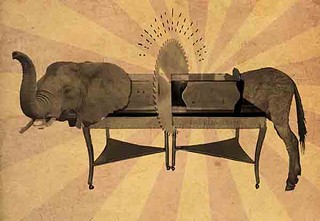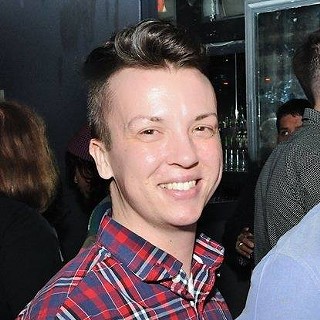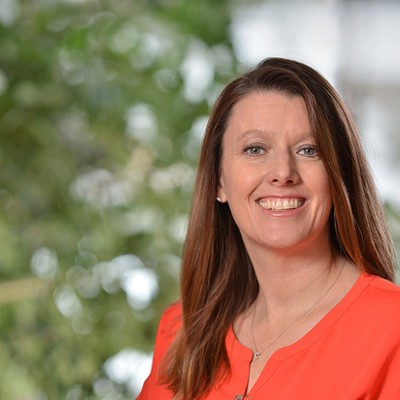A recent survey of millions of internet shoppers found that Republicans prefer grape jelly, while Democrats like strawberry, and progressives are most likely to drink wine with their meals at home, while conservatives drink milk. While out drinking, though, Republicans like brown liquors (whiskey), while Democrats drink the clear stuff (vodka, gin). Yes, there are differences between Republicans and Democrats, and a recent study from American Journal of Political Science went so far as to say that they even have a distinct odor.
But while the political differences between the parties seem to be widening and becoming more defined on the national level, if not downright celebrated, it seems as if the political interests of voters and candidates in Central Oregon is an increasingly shuffled deck.
The numbers certainly tell that story: 10 years ago, roughly two-thirds of voters in Central Oregon were registered Republican, but more recent records show that those numbers have steadily crept toward a more even split among the two major parties and, increasingly, unaffiliated voters.
And nowhere is this fusion of the political parties more evident than in the House District 54 race, where candidates Craig Wilhelm and Knute Buehler have been accused of reaching so far toward a political middle ground that they seem to be popping up on the other side. Despite belonging to opposing political parties, the two candidates take nearly identical stances on many of the issues. For example, when asked on which issues he is most conservative and most liberal, Buehler (the Republican) told the Source he was conservative on fiscal and budgetary issues, but liberal with regard to social issues, specifically, "a woman's right to choose and marriage equality."
Asked the same question, Wilhelm gave the Source almost the same answer: he is conservative when it comes to "balanced budgets [and] fiscal responsibility" and liberal on "women's healthcare." When asked to identify the primary distinction between themselves and their opponents, both candidates went first to personal life experiences—in the community and in business—with only Buehler speaking to political differences, contrasting his claimed record of "political independence" with his opponent's alleged "record as a partisan activist."
Not surprisingly then, in what would seem to defy political convention, a group of influential local Democrats announced last week their endorsement of the Republican candidate, who also won the endorsement of the Independent Party.
Coloring outside the lines
Increasingly, Deschutes County voters are straddling, crossing or eschewing entirely traditional political lines. Currently, voters in the county and in Bend are divided roughly in thirds. The county leans Republican by about 5 percentage points, while the city of Bend leans Democrat by a similar margin. In both cases, about one in four voters are not affiliated with a political party. In House District 54, which covers the bulk of Bend, voters are split 35-30-25—Democrat, Republican, and unaffiliated. In the county, it shifts to 31-36-23.
That dynamic speaks both to Central Oregonians' freethinking ways, but also to a growing trend toward political independence.
"Bend is solidly 'purple' with the rest of the county becoming more moderate," says former Deschutes County Democratic Party chair Gina McClard, who is breaking with her party for the first time to endorse Republican Knute Buehler. "We are independently minded folks here in Central Oregon, so we need a candidate who has his finger on the pulse of the folks he aims to represent."
Current Deschutes County Democratic Party Chair Laurie Gould agrees and says that she has seen it go both ways, with a growing number of Republicans supporting progressive candidates such as District Attorney-elect John Hummel and County Commissioner candidate Jodie Barram.
"People are looking for candidates that reflect their values, regardless of party," Gould says. "A hardline Republican agenda doesn't play very well in Bend, and non-affiliated voters are particularly sensitive to partisanship. Voters will have to work harder to find out a candidate's true point of view on issues."
Personally, says the current Democratic Party county chair, she has voted for Republicans in the past, including Senator Bob Packwood and State Treasurer Ben Westlund, and taken a fiscally conservative position on tax issues.
"Sometimes, I have a more conservative outlook than the Democratic Party, sometimes a more liberal viewpoint," Gould says. "There's room in the Democratic Party for a wide range of perspectives."
But that diversity of perspectives is not just a Democratic phenomenon. At a recent open house, Deschutes County Republican Party Chair John Philo spoke with the Source about the increasing breadth of the Republican Party, explaining that members range from ultra-conservative Tea Party folks to live-and-let-live libertarian types. He says that presents a challenge.
"How are we going to unite the country if we can't unite our own party?," Philo asked.
Part elephant, part donkey...all politician?
While it's unclear what increasing political flexibility means for the future of the two-party system, it's apparent voters now have a greater responsibility to investigate candidates. While once an effective shorthand for established political views, party affiliation no longer guarantees a particular perspective on issues or even a philosophy on governance.
Case in point: the Oregon Republican Party Platform clearly opposes both abortion and same-sex marriage, yet Buehler says he supports access to both. And while his Democratic opponent Craig Wilhelm doesn't appear to be in direct conflict with any of his party's platform, he does use conservative buzzwords to describe his views on the economy, saying in the "values" portion of his campaign website, "We need to cut red tape and burdensome regulations so that small businesses can focus on sustainable growth."
The increasing independence of Central Oregon voters is no secret, but it does beg the question: Are party-hopping candidates simply a product of their environment or are they pandering to a shifting voter demographic? Many voters and political activists says it's a bit of both.
"Voters will have to consider if someone is truly 'moderate,' or just using that label to get elected. Are they running away from their party affiliation or have they shown consistency in their values and positions on issues?" cautions Deschutes County Democratic Party Chair Laurie Gould.
But many of those Democrats endorsing Buehler say they know that he's the real deal, because they know him personally.
"I have known Knute for more than 10 years [and] have found him thoughtful, insightful, moderate and a good listener," says Brooks Resources CEO Mike Hollern, who hastened to add that his party's candidate also seems qualified. "I do not know Craig, but he does seem a thoughtful, solid candidate."
Hollern, who was a registered Republican until the Vietnam War but says he has never been a party line voter, says the trend toward moderate candidates is encouraging, but only if those positions emerge before the primaries, rather than after.
"Frequently, candidates get nominated in primaries by taking positions that appeal to the likely voters in their primaries, then seem to move to the center to appeal to more voters in the general election," explained Hollern. "I still see an overly polarized legislature, with too many decisions made by candidates nominated in a primary based on either far right or far left positions."
Former Bend Mayor Bruce Abernethy says that while candidates may be portraying themselves as moderate in an effort to appeal to a broader base, voters win regardless of the motivation because it counters voter complacency and political extremism.
"In much the same way I think the state legislature was more productive a few years ago when we had a split House (30 Democrats and 30 Republicans), I think there is value in having a contested seat as it has the potential to move candidates towards the middle," Abernethy says. "One of the problems I see at the national level is that Congressional seats are getting 'safer' which means that one party or the other has a large registration edge that means there is no incentive to 'compromise' and candidates of the party in power are pulled to their respective fringe."
One person who knows the pitfalls for venturing too far from her party is Chris Telfer, a Bend-based CPA who served as the District 27 representative from 2008 to 2012. She attributes her loss in the re-election primary to not toeing the Republican Party line.
"While never being the deciding vote on an issue, I have voted for things that would help the people of Central Oregon versus what the Republican Party may have wanted," says Telfer, a one-time Democrat, citing her vote to increase the gas tax and a successful bipartisan effort to approve 640 acres of industrial zoning in Redmond. "My recent race is touted by many in Salem as an example of what can happen to one who crosses the aisle to better the lives of their constituents versus following party lines."
Telfer lost her re-election primary to Tim Knopp, who received endorsements from Central Oregon Republican colleagues Jason Conger and Mike McLane. She says she's skeptical about how well a fellow aisle crosser could do in Salem, but is nonetheless glad to see more candidates making the effort.
"[Loyalty to party] still dominates primary candidates with those candidates willing to cross party lines for the good of constituents versus politics usually losing. As such, the ability of legislators from Central Oregon being able to get things done is lessened," Telfer says. Still, Democrats for Buehler gives her some hope. "I'm glad to see voters support candidates that are willing to break from party lines in order to do what's best for their constituents, and not get muddled in party politics."



























